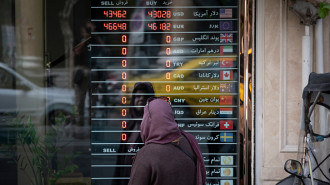Sudan political, civil society groups slam Israel normalisation moves
Sudanese opposition and civil society groups have condemned their military-led interim government’s decision to move forward with normalising ties with Israel.
They were angered after Israel’s foreign minister Eli Cohen visited Khartoum on Thursday, meeting with Sudan's acting FM Ali al-Sadiq and military ruler Abdel Fattah al-Burhan, to discuss formalising ties.
Several opposition parties said that they rejected the visit and normalisation with Israel in light of Tel Aviv’s brutal mistreatment of Palestinians.
The Popular Forces to Resist Normalisation in Sudan, an umbrella group of political and civil society organisations, said the move towards normalisation was especially objectionable considering Israel’s deadly campaign in the occupied West Bank, with dozens of Palestinians killed since the start of 2023.
It also accused Israel of meddling in Sudan’s internal affairs.
Sudan agreed in January 2021 to normalise relations with Israel — but ties were never formalised.
More than two years later, after Cohen’s meeting with Sadiq, Sudan’s foreign ministry said the two countries had "agreed to move forward towards the normalisation of relations”.
General Burhan came to power in October 2021, when he led a military coup to oust a civilian transitional government. A date for democratic elections in Sudan has yet to be fixed.
Opposition groups outraged by Cohen’s visit questioned how an interim government could move forward with normalisation.
Kamal Omar, political secretary of the Popular Congress Party, said: “The current government led by Burhan is not elected, and the current military council is a coup and has no capacity to conclude an agreement or take a political stance."
Three Arab states - Bahrain, Morocco, and the UAE - signed the Abraham Accords to normalise ties with Israel in 2020.
Palestinians say normalisation with Israel is a betrayal to their cause.
Arab leaders’ embrace of Israel officials has been met with especially vociferous criticism since a far-right government led by Benjamin Netanyahu came to power at the end of 2022.
The government includes extreme-right figures who have incited violence against Palestinians.
Israel has been accused of fuelling conflict between Sudan and neighbouring South Sudan, including by supplying the latter with weapons.



